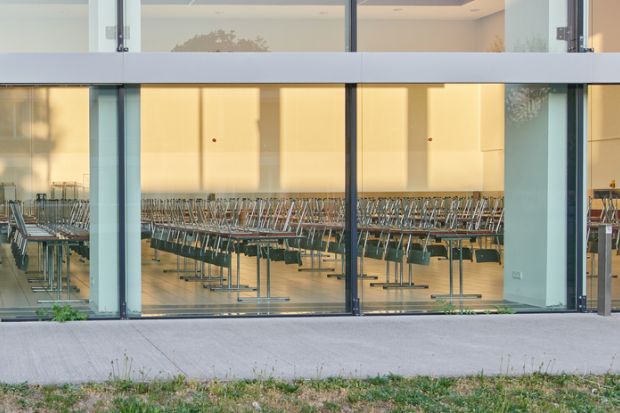Universities’ finances are still under significant pressure as a result of the pandemic, with almost half of global higher education leaders anticipating moderate or significant drops in revenue over the next year, according to a major study.
A survey of almost 800 university presidents and vice-presidents from 90 countries found that 73 per cent were predicting revenue declines during the 2020-21 academic year compared with 2019-20 because of Covid-19, with 43 per cent expecting moderate or significant drops in revenue.
Respondents in North America and Central and South America were most likely to anticipate revenue declines (84 per cent and 81 per cent respectively), while those in Asia and Oceania (68 per cent), Africa and the Middle East (65 per cent) and Europe (58 per cent) were more optimistic.
Forty-six per cent of respondents anticipated a decline in fundraising income, while more than half expected a drop in student enrolment (60 per cent) or university-industry collaboration (55 per cent).
At the same time, 45 per cent of university leaders predicted an increase in demand for enhanced student financial support and 30 per cent expected to invest more in infrastructure.
The survey, which was carried out between July and September, was led by the International Association of University Presidents (IAUP) and Santander Universities, in partnership with several higher education organisations.
When asked whether they were changing their financial model in response to the crisis, respondents were most likely to say that they were focusing on making temporary adjustments to deal with the pandemic emergency (47 per cent). But a significant share said that they were restructuring (39 per cent) or “reinventing” their business model (36 per cent) as part of a long-term response to the impact of the crisis.
Just 44 per cent of respondents indicated that their institution was ready to cope with the pandemic during the 2020-21 academic year, while 46 per cent said that they were “somewhat ready”. But levels of preparation varied widely by region, with 49 per cent of leaders in Asia and Oceania reporting feeling ready, compared with 40 per cent in Europe and just 29 per cent in North America. Private institutions felt more ready to cope with Covid-19 (43 per cent) than public institutions (34 per cent).
The survey also suggested that leaders were preparing for lasting shifts in teaching delivery. When asked about potential transformation in three or more years, 71 per cent of leaders said they envisioned that programmes would be offered in several delivery modes – face-to-face, online and hybrid.
Fernando León García, president-elect of IAUP and president of CETYS University, a private, non-profit institution in Mexico, said that the most important message from the survey was that most institutions “are not thinking beyond the pandemic”.
“Now is the time to see what recurrent challenges you have and what innovations you must begin to discuss that are in the context of your mission, your vision, your commitment to academic quality and to promoting student success and engagement. That’s the challenge we have as we move from the transitional stage to transformation,” he said.




